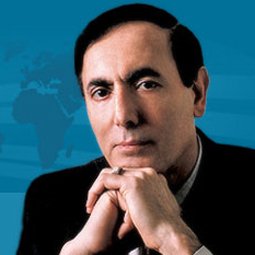
What Netanyahu's Trial Could Mean for Israel's Political Crisis
(Image by YouTube, Channel: Bloomberg Politics) Details DMCA
The long-anticipated indictment of Prime Minister Netanyahu has finally come to pass. For three years, Netanyahu spared no effort to scuttle three criminal cases against him, but failed. These charges and their implications have now become rather clear. They have occupied Netanyahu's thinking as to how to save himself and maintain his position as Prime Minister. They have impacted Israel's policies, in particular toward the Palestinians, and without a doubt the charges have adversely impacted Netanyahu's efforts to form a government following the last two elections.
In the first case, Case 1000, Netanyahu is charged with receiving gifts from Hollywood film producer Arnon Milchan in return for political favors. In the second case, Case 2000, Netanyahu was accused of striking a deal with Yedioth Ahronoth publisher Arnon Mozes to provide Netanyahu with favorable coverage in return for politically targeting a rival newspaper. In Case 4000, the third charge, Netanyahu took steps to benefit his friend Shaul Elovitch, who controlled Bezeq, in return for favorable coverage on Bezeq's news site Walla. The first two cases charged Netanyahu with fraud and breach of trust; the third case added charges of bribery as well.
Netanyahu made a supreme effort all along to have these charges dismissed, claiming in the first case that it is acceptable to receive gifts from friends. In Case 2000, he claimed that he and Mozes were basically fooling each other and had no intention of following through, and argued in Case 4000 that asking for favorable coverage is not bribery.
In April of this year, Netanyahu continued his effort by initially trying to reinstate a 2005 immunity law which gave the Knesset House Committee the power to reject the Attorney General's request to rescind immunity of any particular MK. In May, Netanyahu planned to push through a new law that would allow the Knesset to protect his immunity. This would have allowed the Knesset to ignore any High Court ruling on administrative matters, including potentially revoking Netanyahu's immunity.
And in July, realizing that he couldn't pass such laws, Netanyahu claimed "No one is changing the law, it doesn't need to be changed, and I won't need it at all... it isn't necessary at all because there has never been anything and there won't be anything."
The three indictments were a menacing dark cloud that hovered over Netanyahu's head, and have had a significant impact on his political decisions. He sought to demonstrate that the charges were largely frivolous and that he is the indispensable leader that will safeguard Israel's national security.
But the greater impact of these charges on his behavior was more related to the Palestinians. He needed to show toughness and an uncompromising position not only to cement his right-of-center base, but to demonstrate that he is the only leader who can pursue policies consistent with Israel's presumed national aspirations to control all of the Land of Israel, including the West Bank. Other than continuing to expand and legalize settlements, he announced more than once that following the formation of a new government, Israel will annex significant chunks of the West Bank, to continue to please his base.
Perhaps the most important impact of the charges was his inability to form a government twice this year, in April and September. Because as a sitting prime minister he would not be indicted, he insisted that under no circumstances would he relinquish that position, knowing that an indictment against him will force him to face trial. This was given an even greater urgency after the second election, when he and Kahol Lavan leader Benny Gantz attempted to form a unity government.
For the same reason, Netanyahu insisted that in a rotating prime minister-ship which both sides agreed upon, he would serve as prime minister for the first two years. Since Gantz refused, especially given Kahol Lavan's larger mandate and Netanyahu's pending indictment, Netanyahu is opting to go for a third election within a year, hoping against hope that he will emerge as the winner with a greater mandate to form a new government.
What is sad about all this is that Netanyahu has all along put his self-interest above the party and the nation. Having served as the longest prime minister in Israel's history, Netanyahu's insatiable hunger for power and desperate need to escape the indictment was first and foremost in his mind.
For a man who professes to love his country and has dedicated all his life in the service of the state, he failed to grasp that in the final analysis, Israel's survival has not and will never depend on a single individual. Had he indeed been concerned with the welfare and the security of Israel, he would have agreed to serve in a rotating unity government with Gantz on Kahol Lavan's terms, and spared the country the pain of going through a third election. His failure, and the subsequent failure of Gantz himself to form a government, may well push Israel now toward its third election in a single year.
In an open letter to Netanyahu in October, I wrote "It's time for you to go. There is nothing you can do that others cannot do just as good if not better. Resign your post; turn to the Attorney General to drop the charges against you. The nation will forgive you for your good intentions and some deeds... Unless you want to end up in jail just like your predecessor, spare the nation the humiliation and pain."
Sadly, he did not heed such advice, regardless of its source, and now he may very well end up in jail and stigmatize Israel for having been led by corrupt leaders who seem to have always put their personal self-interest above that of the nation.





